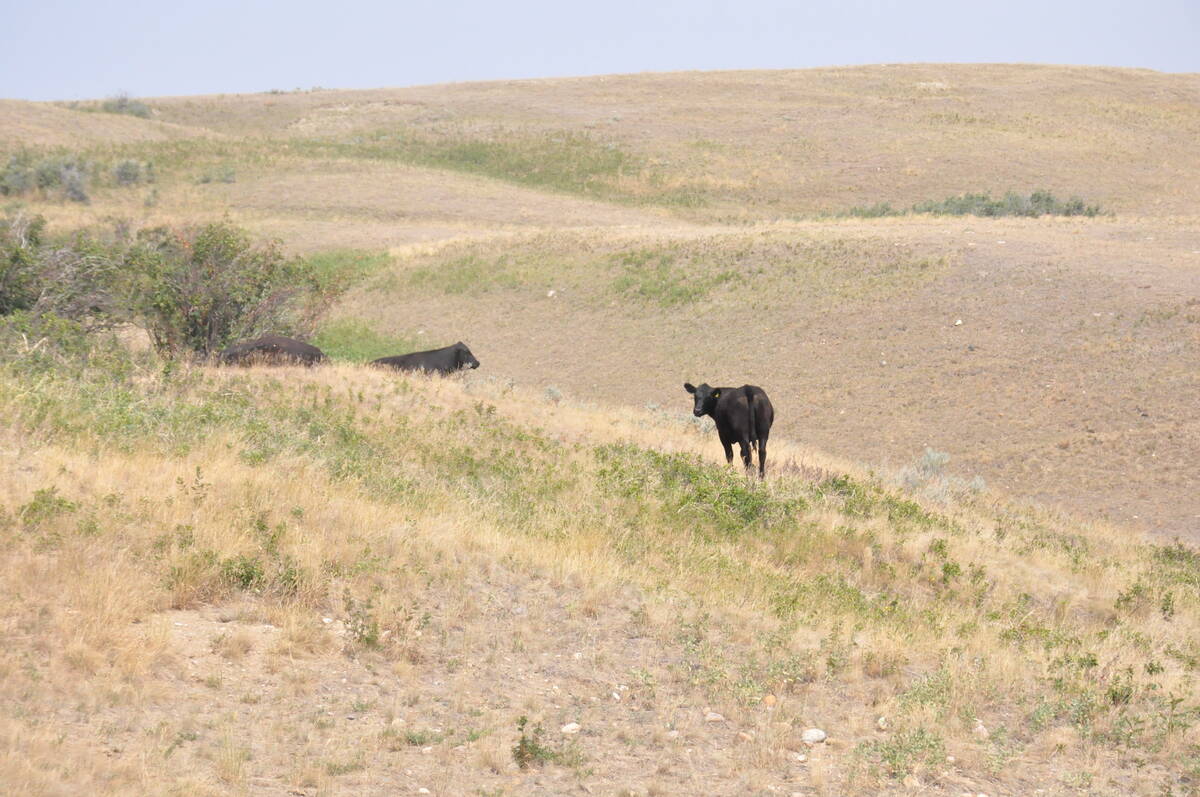KANANASKIS, Alta. – Blackleg is a common problem for potato growers, but in recent years a new strain has appeared.
Blackleg is caused by a bacterium called erwinia carotovora that thrives in cool, moist conditions.
“If you don’t have the right conditions, you won’t likely see it,” said Agriculture Canada plant pathologist Larry Kawchuk, who works at the Lethbridge Research Centre.
Tubers from blackleg infected plants can develop bacterial soft rot, which makes the potatoes inedible. Infection appears as black decay and usually starts on a rotting piece of seed potato and spreads to the stem of the plant.
Read Also

Saskatchewan tests new forage insurance program
Saskatchewan Crop Insurance Corp. tested a new forage insurance program this past summer as it looks for ways to better protect cattle producers.
In the past, the disease killed the plant early on, but researchers have recently seen a less aggressive form where the plant continues to grow and produces big tubers, Kawchuk told the annual meeting of the Potato Growers of Alberta in Kananaskis Nov. 14.
The bacteria produces an enzyme that dissolves the cement that holds plant cell walls together. The result is a stunted plant that may produce infected tubers. These can be harvested and go into storage where the disease spreads.
Researchers are not sure if the problem lies with seed, a new strain of bacteria, climate change or different agronomic practices in recent years where farmers plant early in the spring into cool soil.
The disease seems to have the ability to move to a second phase where the bacteria surround themselves with an impenetrable biofilm.
“They become somewhat resistant to disinfectant and other forms of treatment so this may be part of the problem that we are experiencing,” Kawchuk said.
Researchers are examining ways to penetrate the biofilm. The cure may come from the soil where a virus has been found to attack this bacteria.
“It has been quite effective in the tests we have been running so far.”
To continue his research, Kawchuk encourages producers to send suspect samples to his laboratory in Lethbridge. Potato growers have known for a long time blackleg can be kept in check with long rotations and disinfection of equipment.
“More recently we are finding those management strategies are not enough,” Kawchuk said.















